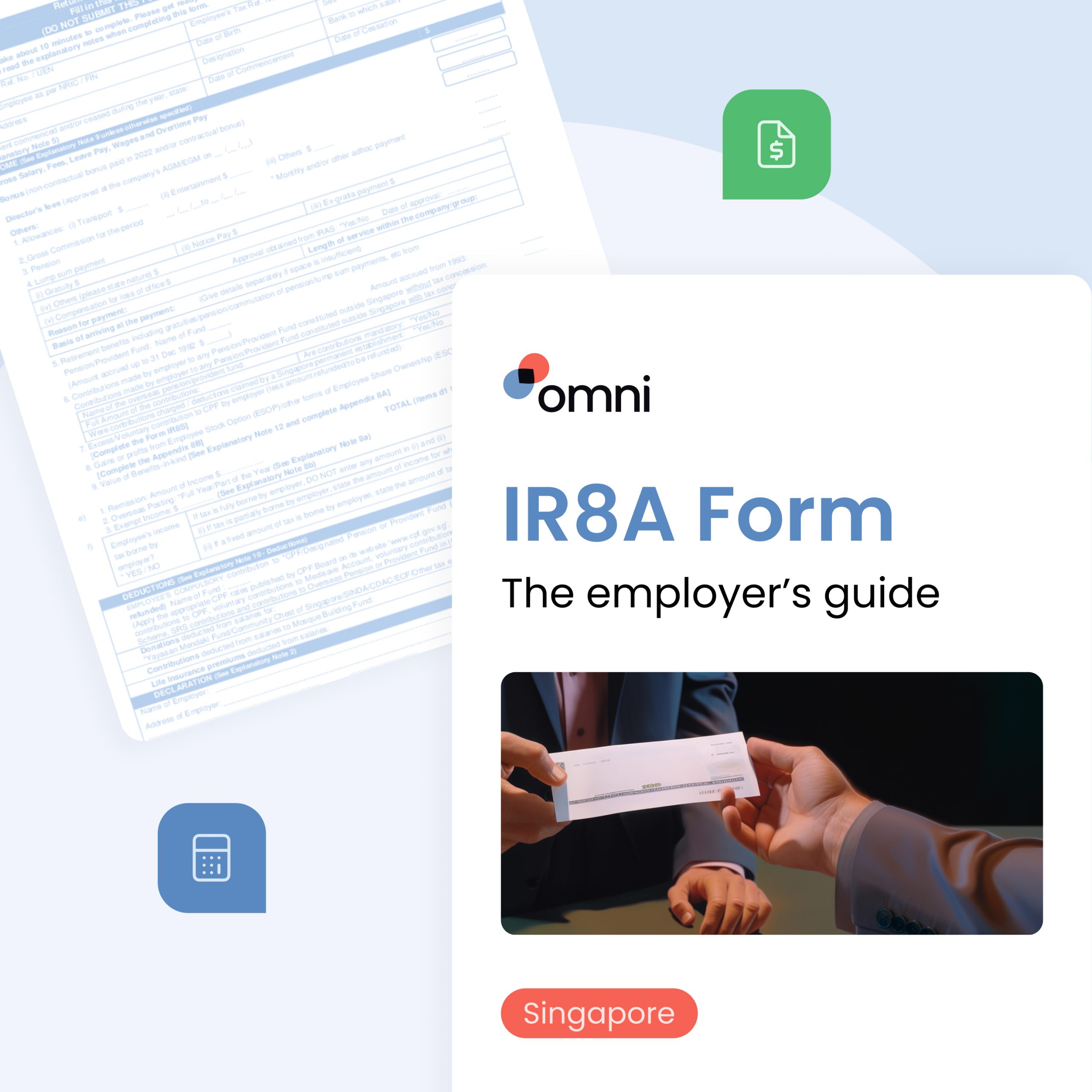Seasoned professionals and entry-level employees alike possess areas for improvement, especially within their professional endeavors. These growth opportunities are often blindspots we have difficulty identifying, which is why feedback can be such a powerful tool in improving performance. However, constructive feedback does not come automatically, instead it is often sought after.
This is particularly important for managers, who as leaders of teams and projects need to stay on top of areas for improvement, and double down on effective strategies. Asking for feedback at work can be daunting (no one likes to hear critical feedback), but it is essential for personal and professional growth.
There are a few ways you can approach asking for feedback that makes the process less scary, and sets the stage for a positive discussion and a solid action plan.
The Importance of Regular Feedback
Regardless of the industry that you are in, regular feedback serves as the cornerstone for individual and organizational growth. Here are the core reasons you should consider incorporating regular feedback into your workplace:
Continuous improvement: Regular feedback creates a culture of continuous improvement. It allows you and your team to identify your strengths and areas for development consistently. Instead of waiting for annual reviews, employees can make ongoing adjustments to enhance their performance, ultimately setting the stage for a more positive and less critical annual performance review.
Enhanced employee engagement: Frequent feedback demonstrates that leaders are invested in their employees’ success. This engagement contributes to higher job satisfaction and a sense of being valued. Both managers and employees are likely to be more motivated and committed to their roles when receiving regular feedback.
Timely recognition: When asking for feedback becomes part of the corporate culture, it allows for timely recognition of achievements. Immediate recognition boosts engagement, motivates employees, and reinforces positive behaviors. Conversely, delaying acknowledgement of good work can take the shine off it, and reduce the morale-boosting impacts.
Course correction: Timely feedback allows you to make appropriate adjustments to your work approach, before any serious action needs to be taken. If either a team member or manager is veering off track or facing challenges, asking for feedback regularly provides the opportunity to address issues promptly. This offers the agility to maintain productivity and prevent minor issues from escalating.
Alignment with goals: Regular feedback ensures that employees are aligned with organizational goals. It provides a platform to discuss individual and team objectives, making necessary adjustments to align everyone with the broader mission. This alignment is crucial for the overall success of the organization.
Employee development: For professional growth and development, constructive feedback on performance is essential. Regular discussions and 1-on-1 meetings about strengths and areas for improvement clarifies and highlights areas for potential growth. Your leaders and team can recommend training, mentorship, or resources to support your skill development.
Building trust and relationships: Regular feedback builds trust between you and your team members. It creates a space that promotes open communication and a sense of transparency. When your employees know that feedback is a continuous dialogue, they are more likely to share their concerns and ideas openly.
Adaptation to change: In a fast-paced work environment, frequent feedback helps you and your team adapt quickly to new challenges. It provides insights into how well you are navigating change and offers guidance on adjustments needed for success.
Things to Know About Asking For Feedback

Approaching someone for feedback is a strategic move that goes beyond just gathering information about your performance. It is a proactive step towards personal and professional growth, and here is why it matters:
It demonstrates humility and strengthens relationships
Asking for feedback showcases humility and a willingness to learn. It sends a powerful message that you are open to constructive criticism and committed to self-improvement. This quality is highly regarded in professional settings.
This in turn fosters stronger professional relationships. It creates a culture of mutual respect and trust. When colleagues and supervisors see that you value their opinions, it strengthens your connections with them.
It encourages open communication and builds a culture of feedback
Requesting feedback encourages open communication. It breaks down barriers and makes it more likely for others to share their perspectives. This openness is crucial for a collaborative and communicative work environment.
When you are actively asking for feedback, it contributes to building a broader culture of feedback within the organization. It sets a positive example for others, encouraging a two-way flow of information that benefits everyone.
It drives personal development and helps you reach your goals
Actively seeking feedback is a proactive approach to personal development. It allows you to identify blind spots and areas for improvement that you might not be aware of. This then accelerates your growth and enhances your skills.
Understanding how your actions impact others is crucial for goal achievement. Regular feedback provides insights into whether you are on the right track and helps you make necessary adjustments to stay aligned with your objectives.
It helps on aligning expectations
Asking for feedback helps to align expectations. It ensures that you are aware of how others perceive your work and contributions. This alignment is essential for avoiding misunderstandings and maintaining clarity in professional relationships.
It boosts your self-awareness
Asking for feedback enhances self-awareness. It allows you to see yourself through the eyes of others, providing valuable insights into your strengths and areas that may need attention. This self-awareness is a key driver of personal and professional success.
Approaching someone for feedback is not just about receiving information—it is a strategic move that contributes to a positive work culture, enhances professional relationships, and accelerates personal development. It is a skill that, when mastered, becomes a powerful tool for continuous improvement.
How to Ask for Feedback
While asking for feedback should be a common practice, employing a little finesse and tact goes a long way. Here are some elements you should consider when asking for feedback:
Choose the right time and place: Timing matters. Select a time when the person you are seeking feedback from is not under intense pressure or stress. Choose a comfortable and private setting that promotes open and honest communication.
Be specific in your request: Clearly articulate what you are seeking feedback on. Whether it is a specific project, a presentation, or your overall performance, being specific helps the other person provide targeted and actionable insights.
Express your intentions: Begin the conversation by expressing your genuine interest in improvement. Communicate that you value the other person’s opinion and are seeking feedback in good faith as a means to grow and enhance your skills.
Use open-ended questions: Frame your questions in a way that invites detailed responses. Avoid yes or no questions and instead ask open-ended ones, encouraging the person to share their thoughts, experiences, and suggestions. This has the added bonus of encouraging exposition and reduces the chance you misinterpret the intent of the feedback.
Request both positive and constructive feedback: Indicate your interest in hearing about both strengths and areas for improvement. This balanced approach ensures a comprehensive view and shows that you are open to acknowledging and addressing weaknesses.
Be prepared for all types of feedback: Mental readiness is crucial before you ask for honest feedback. Be prepared to receive it, whether positive or constructive, with grace and an open mind. Avoid becoming defensive, and instead, use the feedback as a valuable source of information.
Seek feedback from multiple sources: Diversify the sources of your feedback. Don’t limit yourself to a single person’s perspective—gathering insights from various colleagues, supervisors, and even peers provides a more holistic view of your performance.
Show appreciation: Thank the person for taking the time to provide feedback and acknowledge their efforts in helping you improve. This appreciation reinforces a positive feedback loop and encourages ongoing communication.
Follow up on action items: If the feedback includes actionable items, this is the perfect opportunity to demonstrate your commitment to improve by following up on them. This not only shows your dedication but also highlights your proactive approach to your own growth.
Reflect and apply: Take time to reflect on the feedback received. Consider how it aligns with your own perceptions and goals. Apply the insights gained to enhance your skills and refine your approach in future endeavors.
Mastering the art of asking for feedback is essential for professional development. You have the opportunity to set a great example for a culture of continuous improvement, and ultimately strengthen relationships, and propel personal and organizational success. Approach these conversations with a genuine desire to learn and grow, and you will find that feedback becomes a defining element of your career development.
Learn More:
Questions to Ask When Asking For Feedback

When you are asking for feedback, the questions themselves play a central role in gaining meaningful insights. Consider incorporating these questions into your conversations:
What do you think went well?
Start on a positive note by inviting the person you are chatting with to share aspects they believe were successful. This helps set a constructive tone for the feedback session.
What areas can I improve on?
Encourage specific feedback on areas of improvement. This question provides valuable insights into aspects that may have been overlooked previously or need further development.
Are there specific skills you think I excel at?
Acknowledge and build on your strengths by asking about specific skills or qualities that the person perceives as your standout attributes. This question aids in recognizing and leveraging your strengths.
How did my contribution impact the overall outcome?
Gain an understanding of the broader impact of your contribution. This question helps you see the interconnectedness of your work within the team or project.
Can you share an example or specific incident that stood out to you?
Request concrete examples to add depth to the feedback. Anecdotes or specific incidents provide context and make the feedback more actionable.
Do you have any suggestions for approaching similar situations differently?
Explore alternative approaches by asking for suggestions on handling similar situations. This question shows a forward-looking perspective and demonstrates your openness to learning.
How can I better support the team or project in the future?
Emphasize your commitment to collaboration and improvement by seeking input on how you can increase your support for the team or project moving forward.
Are there training or development opportunities that you recommend?
You can demonstrate a proactive attitude towards your professional development by asking about potential training or development areas. This showcases your commitment to continuous learning.
What would you like to see more of in my contributions?
Tailor your contributions to align with expectations by asking about preferences. This question helps you understand what the person values and desires in your work.
Is there anything else that you would like to share or highlight?
Provide an open space for additional comments. This question allows the person providing the feedback to share any insights or perspectives that may not have been covered by the previous questions.
If you are still unsure, check out our ultimate performance review questions template for more inspiration or ideas when it comes to asking for feedback. The goal is to create a dialogue that fosters growth and improvement. Thoughtful questions not only elicit valuable feedback but also contribute to building a collaborative work environment.
Omni Empowers a Feedback-Driven Culture
Asking for feedback regularly in the workplace can be the fastest route to growth and improved performance. If you want to avoid uncomfortable conversations despite feeling stuck, it might worsen the situation over time. Hence, it is up to you to change the situation and gain feedback to reach a possible solution or insight into the current situation. These conversations are important as it is practical, fosters mutual trust and honesty.
Omni makes it easy to communicate with your team with customizable templates and automated communications for instant feedback loops that promote increased employee engagement and high-performing teams.


